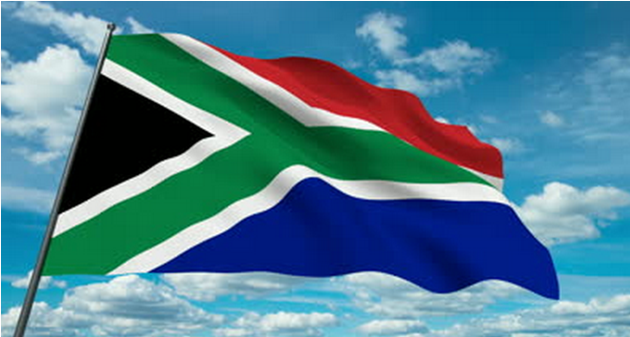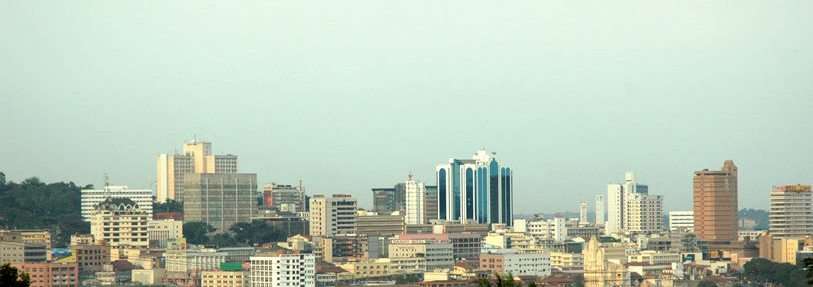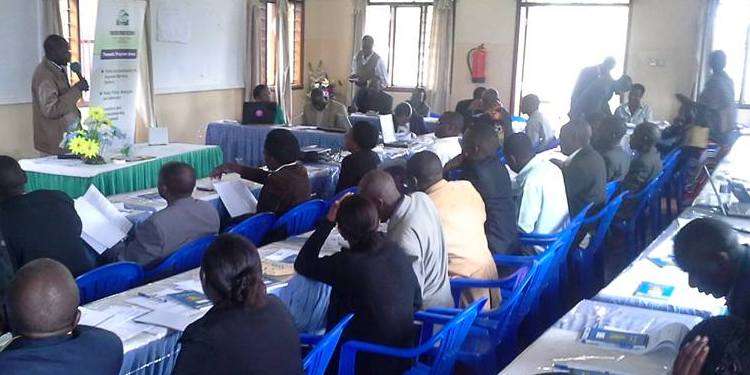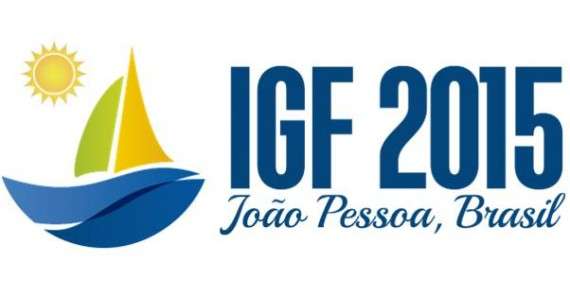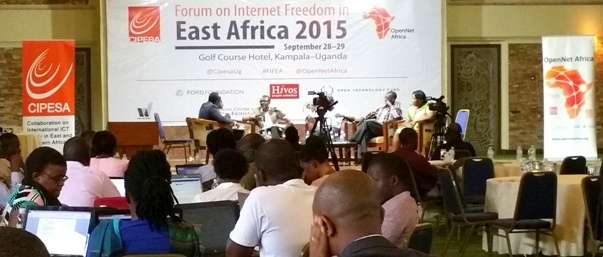By Juliet Nanfuka |
South Africa’s Cybercrimes And Cybersecurity Bill (2014) has been met with apprehension among civil society due to its vague definitions, its limited safeguards for access to information and freedom of expression. In many ways, it resonates with the equally stifling Draft Online Regulation Policy gazetted in March 2015, which contains clauses that have the potential of blocking online content including films, games and certain publications.
Civil society welcomed the invitation by the Department of Justice and Constitutional Development to provide comment to the draft document. However, concerns have been raised across the board including by the Interactive Advertising Bureau South Africa on the grounds that the bill “broadens the definitions of copyright and creates requirements that do not exist in current copyright law.”
The Association for Progressive Communications in their submission stated that the bill does not make sufficient distinction between unlawful intention and a lack of intention by an internet user, such as an inexperienced internet user downloading illegal malware, but being ignorant of this fact. According to APC, given the low levels of digital literacy in South Africa, this is an important concern. it also noted that the Bill lacks a clear perspective on the culpability of minors and the evolving capacity of minor.
The Right2Know campaign in their comments pointed out that the bill gives the state excessive authority by granting “the power to declare any data, database, device, network, infrastructure – publicly or privately owned – to be a ‘National Critical Information Infrastructure.’”
Many clauses in the South African Bill are similar to clauses present in a spate of bills that have emerged in East Africa. In Part V of the Kenya Security Laws (Amendment) Act 2014, the surveillance capabilities of the Kenyan intelligence and law enforcement agencies are expanded without sufficient procedural safeguards. A similar stance is present in the Tanzania Cybercrime Act (2015), which was signed into law with limited public review. The Act makes no indication on the rights the users have of their data nor how it is protected once in the hands of the state, putting citizens’ data at risk especially in the absence of a data privacy and protection law.
Meanwhile in Nigeria, the controversial Social Media Bill was met with criticism as it “completely negated important international conventions to which Nigeria was a signatory”. The Partnership for Media and Democracy in Nigeria (PAMED) raised the concern that “the bill constitutes a threat to democracy because it seeks to repress the social media, the conventional media, the civil society and the citizenry as a whole.”
A recurring theme across many of these new legislations is the continued attempt of states to muzzle opinion of the media, independent social commentators (popular bloggers) and various other non-state actors who are involved in the promotion of freedom of expression, accession to information, increased state transparency and accountability.
Further, the contradictory nature of the new and proposed laws with existing legislation compromises the security and privacy of citizens and their data and leaves gaps for the abuse of internet rights as prescribed in the African Declaration of Internet Rights and Freedoms remain largely ignored.
Google Launches Wifi Project to Ramp up Broadband Access in Kampala
By Ashnah Kalemera |
Two years since launching a project to provide high quality broadband through shared fibre infrastructure in Uganda, Google has now officially launched the WiFi based Project Link in the Ugandan capital, Kampala.
The internet giant has set up WiFi radios and supporting infrastructure at 120 locations within the city to provide citizens and small media businesses (SMEs) with high speed, affordable and reliable internet services “on the go” and at home.
The initiative aims to help local providers access high-capacity networks at a lower cost due to the opportunity to share infrastructure rather than construct their own. In partnership with the Kampala City Council Authority (KCCA) and property services companies among others, Project Link WiFi services are available at shopping malls, sports grounds, apartment complexes and office blocks.
“Google built the network and access points. We operate and monitor it,” said Ela Beres, a Google official. The ISPs and MNOs participating in the project are responsible for the quality of service, determining pricing and providing support to end users.
As at June 2015, Uganda had 36 licensed public service providers for voice and data services. Internet penetration stood at 37% and telephone penetration at 64%. In 2014, the country was ranked 15 out of 51 countries surveyed in the global internet affordability index. The index measures the affordability of internet access in each country as influenced by the extent of infrastructure deployment, adoption rates and existing policy and legislative frameworks.
According to Suzan Kitariko, Google Uganda Country Manager, since its launch in November 2013, Project Link has seen the laying of 800 kms of broadband fibre in Kampala and the surrounding areas of Entebbe and Mukono. This has enabled 13 local ISPs and mobile network operators to provide high quality broadband to an estimated two million people.
“Google Infrastructure has allowed us to focus on our core competences and cut on capital expenditure, thus reducing costs to benefit the consumer,” said Roger Sekaziga of Roke Telkom, one of the project’s partners. Roke Telkom has deployed unlimited Wifi spots at select restaurants and bars at speeds of up to 1mbs for UGX 18,000 (US$ 5) per month or UGX 1,000 (US$ 0.30) per day.
Speaking at the launch which was held at the Protea Hotel on December 3, Uganda’s Minister of Information and Communication Technology (ICT) John Nasasira said improved access to reliable and affordable broadband connectivity had the potential to positively impact Uganda’s health, education, agriculture and business sectors. He added that it would also contribute to government-citizen engagement. Nasasira called for more public-private partnerships in telecommunications infrastructure development to “boost uptake and narrow the digital divide in the country.”
Meanwhile, leveraging on Project Link, panoramic views of tourist and leisure sites in Kampala are now available via Street View. Work is underway to extend coverage to national parks. Project Link is also supporting the regulator, Uganda Telecommunications Commission and KCCA to draft guidelines for infrastructure sharing for all licensed operators.
Over the coming months, Project Link is expected to expand WiFi access to 300 other locations across the country. Since launching its first metro-fibre network in Kampala in 2013, Project Link has expanded to Ghana in West Africa, where it expects to build 1,000 kms of metro fibre.
Reflecting on ICT for Democratic Engagement in Uganda’s Rwenzori Region
By Ashnah Kalemera |
In the Rwenzori sub-region of western Uganda, Information and Communication Technology (ICT) tools have been key tools in promoting public accountability and improved service delivery. Through an ICT “convergence approach” that combines SMS, radio and online polling, Toro Development Network (ToroDev) has for the past five years promoted information and knowledge sharing for citizens’ engagement with their leaders on priority service delivery needs and concerns in the region.
ToroDev’s project, which is part of the ICT4Democracy in East Africa Network, has empowered local citizens in offline and online advocacy and engagement with duty bearers, trained radio journalists in reporting and promoting debate on accountability issues, facilitated quarterly accountability meetings between citizens and leaders, and supported the initiation of 15 civic groups in the region. The civic groups, also known as rural advocacy forums, consist of 80 members each, and are involved in citizen journalism and community mobilisation for the radio debates and accountability meetings.
Over the years, the project has seen increased levels of citizen participation and engagement. In 2014, each monthly advocacy forum meeting was attended by at least 50 members. Outcomes from the monthly meetings are discussed on radio talk shows. Meanwhile, 60 leaders at sub-county and parliamentary level participated in the deliberations and jointly with citizens drew up action plans, among them, the State Minister for Finance.
In western Uganda’s Rwenzori region, citizens’ participation on radio talk shows on governance issues through SMS, call ins, and social media grew from 304 in June 2014 to 4,835 by Nov 2014. See ICT4Democracy in East Africa Annual Review 2014.
Citizens have also gone on to leverage social media to engage in discussions on governance and service delivery. See for instance State of Service Delivery in Rwenzori Region, Orukurato, Rwenzori Journalists Forum and Listeners’ Forum Facebook with active membership pages.
However, at a national level participation of citizen in public affairs remains low. During the 2011 presidential elections, only 59% of registered voters cast their ballot. According to the 2013 Uganda National Household Survey, only 7% of households have a member that participates in governance at the local level, down from 10% in 2010.
The 2013 survey estimates that household participation in local governance in Western Uganda stands at 8.1% and the region boasts the highest proportion of citizens registered as voters (89%).
In the run up to the 2016 national elections, ToroDev convened regional stakeholders at a conference to reflect on the role of ICT in the electioneering processes. Uganda will hold local, parliamentary, and presidential elections in February 2016.
Speaking at the conference, Dr. Paschal Kabura, the director of Uganda Martyrs University Fort Portal campus, urged local citizens to take interest in staying informed of regional concerns that directly affect their livelihoods. “Voter apathy must be overcome,” he said, while calling for more active citizen participation in local governance processes through the use of ICT.
Discussions at the conference also included mainstreaming gender in governance processes. Goretti Amuriat from the Women of Uganda Network (WOUGNET) highlighted the need for building women’s capacity to participate in advocacy and accountability engagements, and for promoting awareness of gender issues at community level. She also stressed the need to consider women’s special needs such as child care facilities at local government consultation meetings, and suitable timing and conducive locations of accountability forums for both women and men.
Amuriat urged workshop participants to fight “biased cultural attitudes” in the region such as only men being leaders, what a man says being “right and final” and women being undermined due to their domestic responsibilities. She said it was important for women to realise that such attitudes “are not biological but socially constructed.”
The conference provided a platform for feedback and knowledge sharing on the performance of existing rural advocacy forums and the potential for establishing forums consisting of local government officials and civil society organisations at district level.
“As a result of the work of advocacy forums we have seen water put in place for example in Mugusu and Katebwa sub-counties in Kabarole district, two class room blocks have been put in place in Bufunjo Seed school in Kyenjojo district, roads [have been] improved in Kichwamba, Rwebisengo and Ntoroko District,” said Tumwesigye Andrew, the leader of Bufunjo Forum in Kyenjojo District, during the panel discussion on the performance of advocacy forums. “We have improved staff in health centres in Bufunjo, improved accountability and improved participation of women in budgetary processes and meetings,” he added.
The conference, which was held on November 19, and 20, 2015 drew more than 80 stakeholders from the districts of Kabarole, Kyegegwa, Kyenjojo, Kasese, Kamwenge, Bundibugyo and Ntoroko. They included district planners, radio, print and TV journalists, civil society organisations, religious leaders, advocacy forum members, youth leaders, district information officers and other local government officials.
The ICT4Democracy in East Africa Network is a regional coalition of civil society organisations leveraging ICT to promote civic participation, human rights and democracy in Kenya, Uganda and Tanzania. Coordinated by the Collaboration on International ICT Policy for East and Southern Africa (CIPESA), it was established in 2011 with seed funding from the Swedish Programme for ICT in Developing Regions (Spider) and is currently supported by the Swedish International Development Cooperation Agency (Sida).
CIPESA at the Internet Governance Forum 2015
The annual Internet Governance Forum (IGF) this year takes place in Joao Pessoa, Brazil from October 10-13. We are excited to participate at the forum which is themed “Evolution of Internet Governance: Empowering Sustainable Development”, during which we will share our insights on internet governance and related issues in East Africa.
An initiative of the United Nations, the IGF is a multi-stakeholder dialogue forum open to representatives from Government, NGOs, academia, private sector, as well as any other entities and individuals interested in Internet Governance issues. This year’s forum will explore the main theme through eight sub-themes including: Cyber security and trust; The internet economy; Inclusiveness and diversity; Openness; Enhancing multi-stakeholder cooperation; The internet and human rights; critical internet resources; and emerging issues.
Through our membership of the Association for Progressive Communications (APC) and partnerships with Paradigm Initiative Nigeria (PIN), Facebook Africa Policy and the Deutsche Welle (DW) Akademie, among others, CIPESA is directly participating in the forum in the following events:
Pre-Events
November 8 – 9, 2015
- Deutsche Welle Preparatory Workshop
- Local Actions to Secure Internet Rights (LASIR) Learning Meeting
Workshops
November 10, 2015
- Workshop 187 on Promoting Local Actions to Secure Internet Rights
November 11, 2015
- Civil Society Round Table with the United States Department of State Cyber Coordinator Chris Painter
- Round Table – #AfricanInternetRights: Whose rights are these anyway?
Side Events
November 12, 2015
- State of the Internet in Africa
- APC 25th Anniversary Celebrations @APC
Follow us on twitter – @cipesaug for updates. Also follow the Forum proceedings using the hashtag #IGF2015.
More information about the IGF is available here.
Forum Sparks Debate on Internet Freedom in Africa
By Juliet Nanfuka |
The recently concluded two-day Forum on Internet Freedom in East Africa 2015 sparked debate on the many facets of internet freedom, including access to information, digital safety, media freedom, online violence against women, regulation of the internet, freedom of expression online, and the online economy.
The first day of the Forum coincided with the internationally celebrated Right to Know Day (September 28) and also served as a platform to recognise the tenth anniversary of the Access to Information Act in the host country, Uganda.
The Forum, organised by the Collaboration on International ICT Policy for East and Southern Africa (CIPESA) under the OpenNet Africa initiative, brought together just under 200 participants, a dramatic increment from the 85 who participated at last year’s inaugural Forum. Participants represented a wide spectrum of stakeholders including communications regulators, civil society, intermediaries, private sector, tech enthusiasts, artists, media and ordinary citizens. It was supported by the African Centre for Media Excellence (ACME), Hivos, Ford Foundation, Open Technology Fund, UNESCO and Web We Want.
According to the ITU, there are currently 3.2 billion people using the internet of which, by end 2015, two billion will come from developing countries. There is therefore a need to create awareness and to advocate for internet rights in developing countries that are registering a dramatic uptake of the internet.
The African Declaration on Human Rights has set the foundation upon which human rights standards and principles of openness in internet policy formulation can be developed in Africa. While various policies and laws have been developed in the continent’s 54 countries, many contradict the rights to privacy, access to information, data security, and freedom of expression.
In his opening remarks at the Forum, Jaco du Toit, Communication and Information Adviser at the UNESCO Regional Office for Eastern Africa, pointed to growing concerns over the mechanisms used by governments in the region to monitor citizen’s activities both online and offline. These concerns threaten legitimate online interactions including by the media that plays the role of society’s watchdog, and by critical citizens with large online footprints and human rights organisations that rely on information to encourage civic participation and good governance.
The use of ICT tools by citizens to exercise their right to free expression and as an engine for development is widely recognised especially as the push for open data gains momentum across the African continent. However, recognition of internet rights in the same breath as the rights guaranteed offline by national constitution remains a grey area.
Internet Freedom in East Africa
The forum served as the launch of the State of Internet Freedom in East Africa 2015 report on access, privacy and security online in Burundi, Kenya, Rwanda, Tanzania, and Uganda. The report is the result of qualitative and quantitative research conducted in the focus countries between May 2014 and August 2015.
The report highlights legal developments related to internet freedom in each of the focus countries such as the May 2015 ruling by the East African Court of Justice (EACJ) against the Burundi Press Law of 2013, on the grounds that some sections went against the principles of press freedom. This marked a victory for the Burundi Journalists Union who had petitioned the court over the repressive law. In Kenya, the Security Laws (Amendment) Act was signed into law despite concerns over its expansion of the surveillance capabilities of the Kenyan intelligence and law enforcement agencies.
In Tanzania, the controversial Cybercrimes Act and the Statistics Act were both passed in 2015 notwithstanding protests due to the restrictions they place on advancing transparency and access to information.
Progressive public access developments are also reported such as the Smart Kigali initiative which provides wireless internet service on select public transport buses. The Ministry of ICT in Rwanda also launched the “Stay Safe Online” campaign aimed at promoting awareness on cyber security.
The report also presents some of the violations of internet freedom that were registered in East Africa over the last year.
Knowledge, Attitudes and Perceptions on Internet Freedom
The report found that understanding of what constitutes internet freedom among the region’s citizens is varied. The majority associated internet freedom with the ability to utilise the internet free of unwarranted state regulations or commercial restrictions.
Online safety practice was low with only 48% of the respondents using digital safety and security tools to safeguard themselves online. A lack of awareness of security risks on digital platforms and shortage of skills to secure communications were among the reasons for not actively utilising online safety tools.
The report further found widespread perception among East Africans of government surveillance even where there was limited evidence remain prevalent of actual surveillance. Respondents cited national security, countering terrorism, and combating hate speech as key reasons for government surveillance.
Discussion Echoes Report Findings
Discussions in the 13 sessions at the forum repeatedly pointed out contradictory or non-existent laws to protect users especially in instances where critical content in writing, or creative and performing arts have led to arrests. This in turn has contributed to self-censorship by independent content producers and media.
Further, victims of online violence against women (VAW) do not have any legal structures to ensure their rights are upheld; instead, many are castigated more than the perpetrators of the violence. Limited legal provisions on the vice have thus led to a culture of silence and misinformation which in turn impacts upon reporting of cases to indicate the extent and actual statistics of VAW in African countries.
Discussions at the forum echoed insights gathered in the report, including the friction between control of content which impacts upon freedom of expression and regulation of the internet so as to combat hate speech and terrorism, and to maintain national security and public order.
“Ignorance of the law is not an excuse,” said Irene Kaggwa, Head of Research and Development at the Uganda Communication Commission on the need for responsible use of the internet. Jimmy Haguma, Acting Commissioner with Uganda Police’s Cybercrimes unit, , added that “freedom without control” would contradict certain needs, such as ensuring child online safety and protection from theft and fraud.
The challenges involved with ensuring that the internet is a safe space for genuine interaction were summarised by Facebook’s head of Public Policy for Africa, Ebele Okobi, who noted that “If Facebook were a country, it would be the biggest country in the world.” She added that the global platform faces a challenge of how to apply the laws of every country in which it has users in its policy on online content.
Underpinning all discussions at the forum was the use of social media and the need for users to build their digital security capacities as the online arena increasingly becomes the key avenue for social interaction. However, legislation in many countries has not moved fast enough to ensure the protection of users who fall victim to online abuse and violence.
In his closing remarks, Vincent Bagiire, Chair of the ICT Committee, Parliament of Uganda, emphasised the necessity for further engagement on internet freedom not only by civil society but with a more inclusive multi-stakeholder approach which works towards ensuring a free and open internet. He stated that this responsibility exists first at the national level, “but given the borderless, global nature of the internet”, it is also very much a global issue. “Internet freedom is both a domestic and a foreign policy subject,” he said.
The Forum had representation from 19 countries including Burundi, Cameroon, Democratic Republic of Congo, Ethiopia, Germany, Italy, Kenya, Nigeria, Rwanda, Tanzania, South Africa, South Sudan, Sudan, Somalia, Uganda, United Kingdom, United States of America, Zambia, Zimbabwe
For more details, visit the Forum on Internet Freedom in East Africa 2015 page, See the full programme and the speaker biographies.

